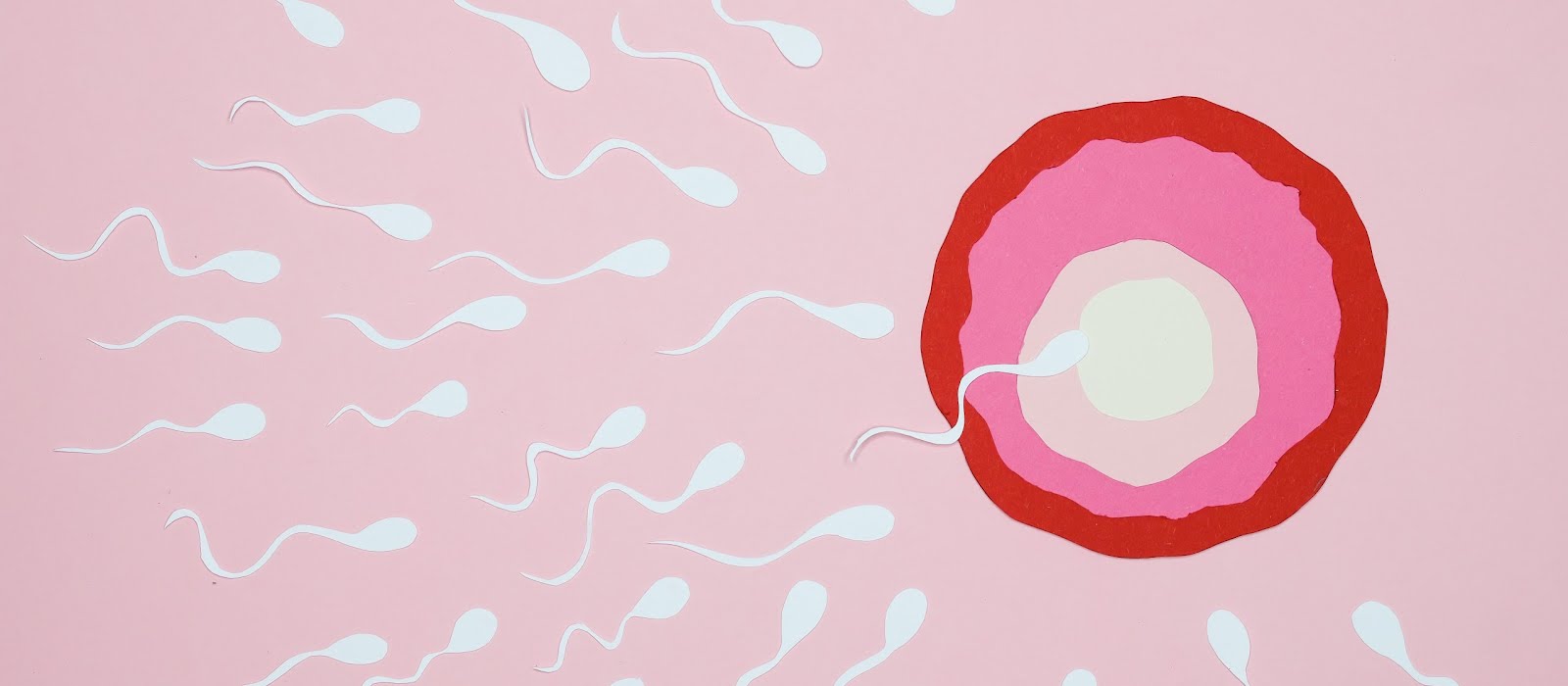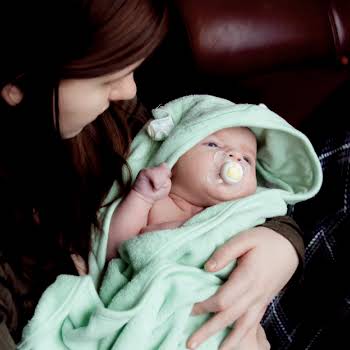Nadezhda Moryak / Pexels
You’re not alone: IMAGE.ie readers speak out on their own fertility journeys


Delving into the results of our recent survey, the issue of fertility – and all the ups and downs that go with this very broad topic – is proving to be hugely important to a vast majority of IMAGE.ie readers.
We surveyed IMAGE.ie readers to find out what their current concerns or interests are around the topic of fertility. We had hundreds of readers respond, 86% of whom were between the ages of 31 and 45, some sharing moving stories of pregnancy loss, failed IVF treatments, secondary infertility, early menopause and, yes, the birth of a healthy, happy baby after a long wait.
Before we delve into the key findings of our survey, we would like to thank all of those who took the time to share their thoughts with us and we hope your responses further help other readers to feel understood and that they’re not alone in their own fertility journeys.
It is amazing when you start to talk about it how many people out there have needed help conceiving and it is so nice to speak to these people and know you’re not on your own.
How important is the issue of fertility to our readers?
Perhaps unsurprisingly, the key findings of our survey show the issue of fertility is high on our readers’ agenda. Analysis of our results show that 84% of those surveyed want to have a child or more children one day. Sixty per cent are currently trying to conceive, 72% of whom are doing so through fertility treatment. Meanwhile, 89% of respondents are worried about their fertility, while 57% are worried about their partner’s. Finally, 81% would like to know more about IVF and other treatment options available in Ireland.
Our current understanding of fertility
It is widely acknowledged that reproductive health education – not just in Ireland but in many other countries too – could do with a tune-up. And many are left confused by contradictory advice, wondering if they should “just keep trying” before seeking medical advice about their fertility health.
Dr John Waterstone of Waterstone Clinic, advises that “knowledge is power for fertility so don’t be afraid to get a fertility check when, or even before, you start trying. The information and advice you get can be really useful, especially if it’s reassurance that all is well. If there are any small issues, they can be corrected to help you conceive naturally, or if you need help from a fertility clinic, then you can get started on your path”.
Of our survey respondents, 42% say they would try to conceive for up to six months before seeing a doctor; 15% would wait up to three months, and 34% would wait up to a year. When you feel ready to, seek advice from an expert. According to Dr Bart Kuczera of Beacon CARE Fertility, “We recommend seeking fertility advice after one year of trying to conceive without success. However, if the woman is over 35 years old, we suggest seeking advice after six months of trying.”
Fertility assistance is more commonly sought than some might think
Many people undergo fertility treatment – or some level of reproductive assistance – in Ireland. In fact, it’s quite likely most of us know someone who’s experiencing fertility issues (we just might not realise it), and this is illustrated in our results, too, with 92% saying this is the case for them.
Our journey to our twins took four years. We had IVF and luckily after two rounds we were successful. It was a long tough road and one I wouldn’t change for anything.
Cost is a factor
Anyone desperately wanting to start a family would likely give whatever money they can and need to, to realise their dream, but we all have financial limitations and the costs of fertility treatment – while not always expensive – can creep up depending on your needs and the success of your first attempts. While 95% of our readers would consider getting a fertility check, of those who wouldn’t, 30% say that cost is the reason. In fact, out of all those surveyed, 57% say cost is a barrier for them when considering fertility treatment, while 37% say their private health insurance would cover some of the cost.
The sad realities surrounding pregnancy loss
Pregnancy loss can be devastating for anyone who has experienced it, and some go through this traumatic experience on multiple occasions, which can affect every aspect of the person’s life, including their mental health. Sadly, 46% of those surveyed experienced miscarriage in the past, 59% of whom more than once.
My first miscarriage completely floored me. The constant grief and sadness was so difficult. My mental health was poor at that point and there was very little support [available to me at that time].
“Miscarriage is the most common complication of pregnancy but remains surrounded by silence and stigma,” says Professor Keelin O’Donoghue, consultant obstetrician at Cork University Maternity Hospital and Principal Investigator at INFANT, the Irish Centre for Maternal and Child Health Research. “For many women and their partners, miscarriage is unexpected, and they can be unprepared for the physical and emotional reality of pregnancy loss. Information and support are key at this time, as well as individualising care for future pregnancies to help couples – the majority will go on to have a successful pregnancy.” For further information and support, visit corkmiscarriage.com or pregnancyandinfantloss.ie.
Interest in egg freezing is on the rise
With many women fearing their fertility window mightn’t extend far beyond their current age, others who’ve experienced a health issue they worry could affect their fertility, and many others simply wanting to keep their options open due to not knowing what their lives will be like in the distant future, it seems the option of egg freezing is beginning to appeal to more and more women in Ireland. Sixty-one per cent of our survey respondents say they would consider freezing their eggs.
By freezing my eggs, I feel like I’m giving my future self the best chance to have a family, either with a partner or on my own.
Be careful what you say
We’ve all heard painful stories like this one: a person who’s been trying to conceive for months or even years is approached by a gleeful friend who announces they’re expecting only to remember their pal’s ongoing difficulty and tries to quickly alleviate any pain with positive words of reassurance. It so easily happens and it’s not the friend’s intention to be hurtful … it’s just an unfortunate situation that most of us need to be mindful of so we can show more sensitivity around the language we use.
There are those who continue to press the newly married couple about their family plans, suggesting they might not want to wait too long. Or the ones who enquire when the mother-of-one will get going again to make it two. (For the record, our advice is to never, ever make such enquiries.)
The journey has been so long and winding and tough on my mental health. It is so hard to plan for a future when you don’t know what your future looks like.
Many of our readers (76%) find the language used by family or friends surrounding fertility and having children insensitive or hurtful, while 64% believe there can often be a lack of empathy towards those experiencing fertility issues with 34% saying this is sometimes the case.
I was on the other end of a lot of toxic positivity comments while coping with unexplained infertility – ‘just relax and it will happen’ or ‘you’re stressing too much, that’s why you can’t get pregnant’ along with ‘it’ll happen for you, I know it!’ – none of these are helpful and they can be incredibly painful.
Improvements in the workplace
While we still have some way to go when it comes to employers providing much-needed support to employees who are undergoing fertility treatment, our findings do show that some of our readers are getting some of that positive support in their workplaces: 45% say they would be happy discussing their fertility situation with their employer, while 47% would be happy approaching their employer to request some flexibility while trying to conceive, and 58% believe their employers are open to such conversations.
Mary McAuliffe, Head of Clinical Services at Waterstone Clinic said, “Having a conversation around fertility can be hugely beneficial for both employees and employers. Many patients might be worried about broaching the subject with their employer, but through that conversation, employers have the opportunity to gain more understanding about the journey their employee is on, what their needs are, and how they can best support them”.
When it comes to maternity leave, 61% of our respondents say their current employers pay up to 100% of normal salary, while 9% say theirs pay up to 50% salary. But as mentioned, we do still have a way to go – only 31% say they find their employers are supportive when it comes to employees’ fertility journeys, providing things like IVF, miscarriage leave or financial support for treatment.
The quotes used throughout this piece that are not attributed to a named source were provided by respondents of the survey who volunteered to share their stories. In the interest of privacy, we have left these anonymous. We would like to extend our thanks to those readers for their honesty and bravery
Continue to follow us here to hear from Ireland’s leading experts in our IMAGE talks Fertility series in partnership with Waterstone Clinic
.






















